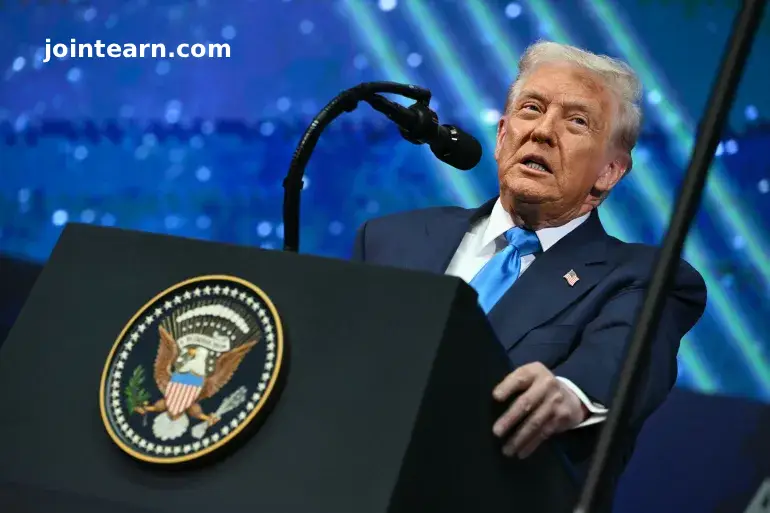
Gyeongju, South Korea – October 29, 2025 — United States President Donald Trump said he anticipates sealing a “great deal” with Chinese President Xi Jinping during their upcoming meeting, signaling a potential thaw in relations between the world’s two largest economies after years of escalating trade and geopolitical tensions.
Speaking at the Asia-Pacific Economic Cooperation (APEC) CEO Summit in Gyeongju, Trump described the expected agreement as “something very exciting for everybody” and “better than fighting and going through all sorts of problems.” The remarks came as part of a wide-ranging address that touched on trade, security, and America’s renewed economic focus in the Asia-Pacific region.
First Trump-Xi Meeting Since 2019
The upcoming summit, scheduled for Thursday in Busan, South Korea, marks the first face-to-face encounter between Trump and Xi since 2019, when they met on the sidelines of the G20 Summit in Osaka, Japan. The renewed talks are expected to result in the signing of a new US-China trade deal, potentially reshaping global commerce and signaling a cautious reconciliation after years of tariff wars.
Trump’s visit to South Korea follows earlier stops in Japan and Malaysia as part of a six-day Asia tour aimed at strengthening U.S. trade partnerships and regional security alliances.
Trump Hints at Tariff Reductions and Drug Control Measures
While Trump did not disclose specifics of the anticipated US-China trade deal, he suggested that the agreement would include lower tariffs on Chinese imports and commitments from Beijing to tackle fentanyl production, a major source of the deadly opioid crisis in the United States.
Speaking aboard Air Force One earlier Wednesday, Trump said he expected the deal to “solve a lot of problems,” adding that China would take “strong action” against the illegal production of fentanyl precursors.
Currently, the U.S. imposes a 20 percent tariff on Chinese goods, citing Beijing’s alleged inaction on the issue. The proposed agreement is expected to include a phased reduction in those tariffs in exchange for stricter drug enforcement measures in China.
Broader Economic Cooperation on the Table
According to U.S. officials, the potential trade pact may also include:
- Suspension of China’s planned export controls on rare earth minerals
- Deferral of a new 100 percent U.S. tariff on additional Chinese imports
- Expanded Chinese purchases of U.S. agricultural goods, including soybeans and corn
Analysts say such concessions could restore confidence in bilateral trade and mark the most significant step toward normalization since the US-China trade war began during Trump’s first term.
Beijing: Meeting Aims to “Stabilize Relations”
China’s Ministry of Foreign Affairs confirmed on Wednesday that Xi will meet Trump in Busan. Spokesperson Guo Jiakun said the talks would focus on “strategic, long-term issues related to China-U.S. relations and major global concerns.”
“We are willing to work with the U.S. side to strive for positive outcomes at this meeting, providing new direction and momentum for the stable development of China-U.S. relations,” Guo said at a press briefing in Beijing.
The statement reflects Beijing’s cautious optimism after years of economic strain, supply-chain disruptions, and diplomatic rivalry across Asia and the Pacific.
Trump Announces Progress on US–South Korea Trade Deal
In addition to his upcoming meeting with Xi, Trump revealed that he had “pretty much finalized” a new trade agreement with South Korea. The deal reportedly includes a U.S. tariff reduction to 15 percent on Korean vehicles and auto parts, in exchange for a $350 billion investment package from Seoul.
South Korean presidential aide Kim Yong-beom confirmed the details, stating that the investment package will include $200 billion in direct cash payments and $150 billion in shipbuilding cooperation.
“This agreement demonstrates the strength of our alliance and the shared prosperity it brings,” Kim said. The new deal resolves months of tension between the two allies over trade balances and defense commitments.
Expanding Industrial Ties: Hanwha Shipyard Investment
Earlier in his visit, Trump praised the Korean-led expansion of the Hanwha Philly Shipyard in Philadelphia, Pennsylvania, calling it “one of the most successful shipyards anywhere in the world.” South Korean shipbuilder Hanwha Ocean announced in August that it would invest $70 million to expand the facility, which it purchased last year.
Trump hailed the investment as evidence that his economic policies are “bringing manufacturing back to America” while deepening strategic cooperation with key allies in Asia.
Significance of the Trump–Xi Summit
The forthcoming Trump–Xi summit carries high stakes for global trade, technology access, and regional stability. Experts view the meeting as an opportunity for both sides to ease economic tensions and restore predictability to supply chains disrupted since 2018.
“This could be the most important U.S.-China meeting in nearly a decade,” said one Asia policy analyst in Seoul. “If both sides can reach common ground on tariffs, technology, and security cooperation, it could redefine global trade relations heading into 2026.”
Despite optimism, challenges remain — including disputes over Taiwan, South China Sea security, and human rights. Still, both leaders appear eager to project an image of pragmatic diplomacy and mutual benefit.
As Trump concluded his APEC address, he emphasized optimism about renewed engagement:
“There’s no reason to fight when we can cooperate. We’re going to have a great result — something really great for everyone.”


Leave a Reply